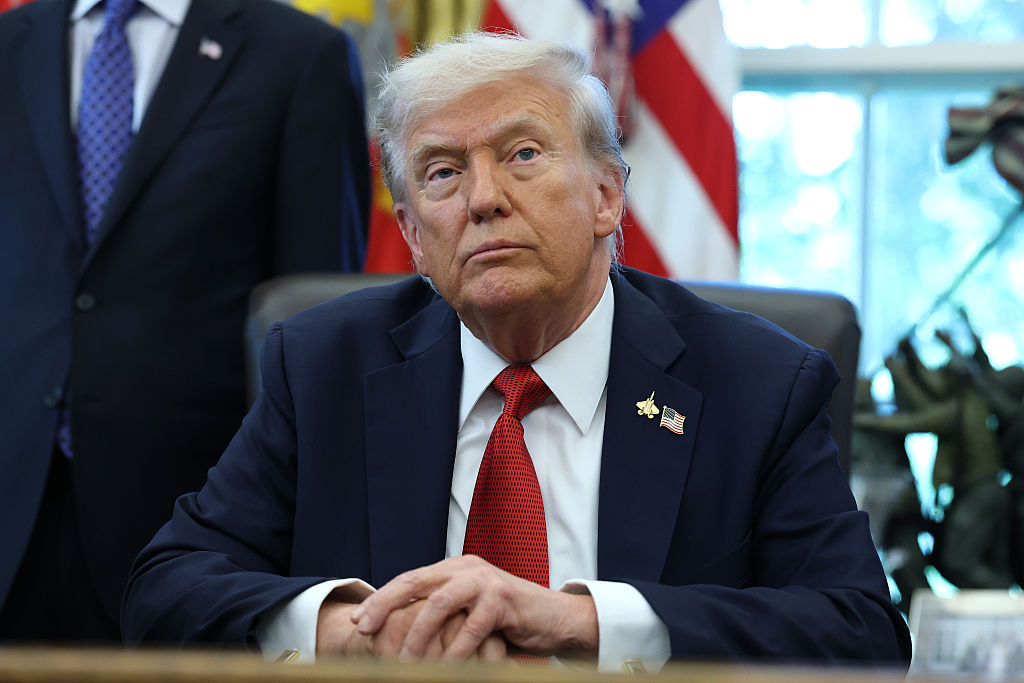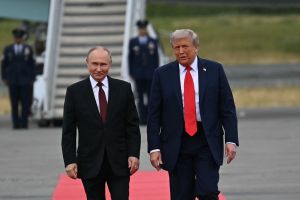Has Donald Trump “weaponized” the justice system to go after his political enemies? The answer is no.
“What about former FBI director James Comey?” you ask. “What about New York Attorney General Letitia James?” Both went after Trump hammer and tongs. Now both have been indicted by the Trump Justice Department. Are those not textbook cases of “weaponization,” of “retribution,” of using the power of the system to punish people who have punished you?
Hold on. I write this in mid-October. By the time you read it, I suspect that the list of indictments will be much longer. Candidates for inclusion on this Ko-Ko-like “little list” include John Bolton, national security advisor during Trump’s first term; Jack Smith, the special counsel who managed to rack up 37 indictments against Trump in two criminal cases; and sundry other former intelligence officers and DoJ officials. The dragnet will be large; it will be relentless.
So haven’t I just admitted that Trump weaponized the justice system?
No. Trump didn’t weaponize the justice system. He inherited a weaponized justice system.
More on that shortly. First, here’s another little list. Peter Navarro, Steve Bannon, Mike Flynn, Rudy Giuliani, John Eastman, Mark Meadows, Sidney Powell, Jenna Ellis, Jeffrey Clark and George Papadopoulos.
That’s a very incomplete roster of Trump aides and supporters who were indicted, prosecuted, disbarred and/or jailed. The list does not include the more than 1,200 people convicted over the January 6 protest at the Capitol. Nor does it capture a contrast that Navarro describes in a post on X: “I was dragged through Reagan Airport in leg irons, mug shot, handcuffs, jail cell, the full circus. Meanwhile, Comey faces felonies up to 10 years for the worst political conspiracy in modern history, and he slips quietly through a side door.”
Responding to demands that Comey be subjected to the humiliation of a “perp walk,” Trump’s FBI Director Kash Patel said there would be “no drama.” But the FBI that Trump inherited specialized in such drama. Remember their guns-drawn, dawn raid to arrest his confidant Roger Stone? The tipped-off media were there in force to lap up and regurgitate the entertainment.
That’s one element of the system Trump inherited. Another has to do with the courts. Trump and his allies faced kangaroo courts, kangaroo juries and a kangaroo media. All are Democrat specialties. There are certainly places in the US where judges, or at least juries, favor Conservatives. But is there any analogue to Manhattan or Washington, DC, where the name “Trump” guarantees conviction and hectoring media obloquy?
There is not. The cases that Letitia James and Alvin Bragg brought against Trump in New York were patently ridiculous. But had the President not won re-election he would be facing a $500 million fine, the destruction of his business empire and decades in jail, all to a hallelujah chorus of media self-congratulation.
At the moment, that media has shifted into a minor key, not crowing but spewing threnodies about “selective prosecution,” “lawfare,” “retribution” and of course “weaponization.” Yet Trump could never deploy the sort of judicial and media vendetta that had been organized against him. Republicans lack the kangaroos.
In March, I wrote here about deterrence, not as a feature of military strategy but as a part of political wisdom more generally. The attack on Trump and his allies, I noted, was only incidentally directed at those individuals. Writ large, it was aimed at undermining the very things they claimed to be supporting: “our democracy” and the rule of law. From that perspective, I said:
The Trump administration’s efforts to restore fiscal sanity, accountability, and common sense to the workings of government will seem like retaliation or retribution only to those who have betrayed those values. For them, the closure of redundant or malevolent agencies, the exposure of financial wrongdoing and incompetence, the revocation of tolerance for illegal migrants who prey on US citizens will seem simply punitive. It is punitive, because it is in response to egregious wrongdoing. But in the long term, such masculine policies will function less as a punitive expedient than as a deterrent.
The press is full of caterwauling headlines about Trump’s “vindictive,” “weaponized” prosecutions. But if you step back, such imprecations ring hollow. For one thing, as the commentator “Cynical Publius” noted: “James charged Trump with nonsense; Trump charged James with a verifiable crime.” The same is true of Comey. The same will be true of the rogues’ gallery of anti-Trumpists destined for the courts.
After she got done running for office on a platform of suing Trump and calling him “illegitimate,” James dusted off her oratory. “When powerful people cheat to get better loans,” she intoned, “it comes at the expense of hardworking people. Everyday Americans cannot lie to a bank to get a mortgage, and if they did, our government would throw the book at them. There simply cannot be different rules for different people.”
That was before it was revealed that James lied to a bank to get a lower interest rate on a mortgage.
Here is the moral of the story. Deterrence works only because there lurks in the background a credible threat of retaliation. Before Trump, Republicans were too lily-livered to mount any such threat. Would it be better if an incoming administration did not set about indicting its predecessors? Yes. Which is why the President’s vigorous effort to call to account those who waged lawfare against him is a necessary purgative. If vigorously pursued, it may just reset the conventions and courtesies of our political life.
This article was originally published in The Spectator’s October 27, 2025 World edition.


























Leave a Reply